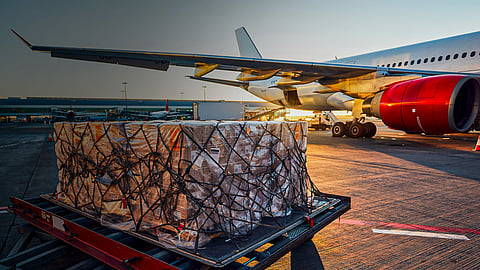War in Ukraine and Omicron Weighs on Air Cargo
The International Air Transport Association (IATA) released March 2022 data for global air cargo markets showing a drop in demand. The effects of Omicron in Asia, the Russia – Ukraine war and a challenging operating backdrop contributed to the decline.
Global demand, measured in cargo tonne-kilometers (CTKs), fell 5.2% compared to March 2021 (-5.4% for international operations).
Middle Eastern carriers experienced a 9.7% year-on-year decrease in cargo volumes in March. Significant benefits from traffic being redirected to avoid flying over Russia failed to materialize. This is likely due to subdued demand overall. Capacity was up 5.3% compared to March 2021.
Several factors in the operating environment should be noted:
The war in Ukraine led to a fall in cargo capacity used to serve Europe as several airlines based in Russia and Ukraine were key cargo players. Sanctions against Russia led to disruptions in manufacturing. And rising oil prices are having a negative economic impact, including raising costs for shipping.
39% Shoppers Won’t Give Retailers a 2nd Chance After Poor Delivery
New export orders, a leading indicator of cargo demand, are now shrinking in all markets except the US. The Purchasing Managers’ Index (PMI) indicator tracking global new export orders fell to 48.2 in March. This was the lowest since July 2020.
Global goods trade has continued to decline in 2022, with China’s economy growing more slowly because of COVID-19 related lockdowns (among other factors); and supply chain disruptions amplified by the war in Ukraine.
Willie Walsh, IATA’s Director General said: “Air cargo markets mirror global economic developments. In March, the trading environment took a turn for the worse. The combination of war in Ukraine and the spread of the Omicron variant in Asia have led to rising energy costs, exacerbated supply chain disruptions, and fed inflationary pressure.
"As a result, compared to a year ago, there are fewer goods being shipped - including by air. Peace in Ukraine and a shift in China’s COVID-19 policy would do much to ease the industry’s headwinds.
"As neither appears likely in the short-term, we can expect growing challenges for air cargo just as passenger markets are accelerating their recovery.”


